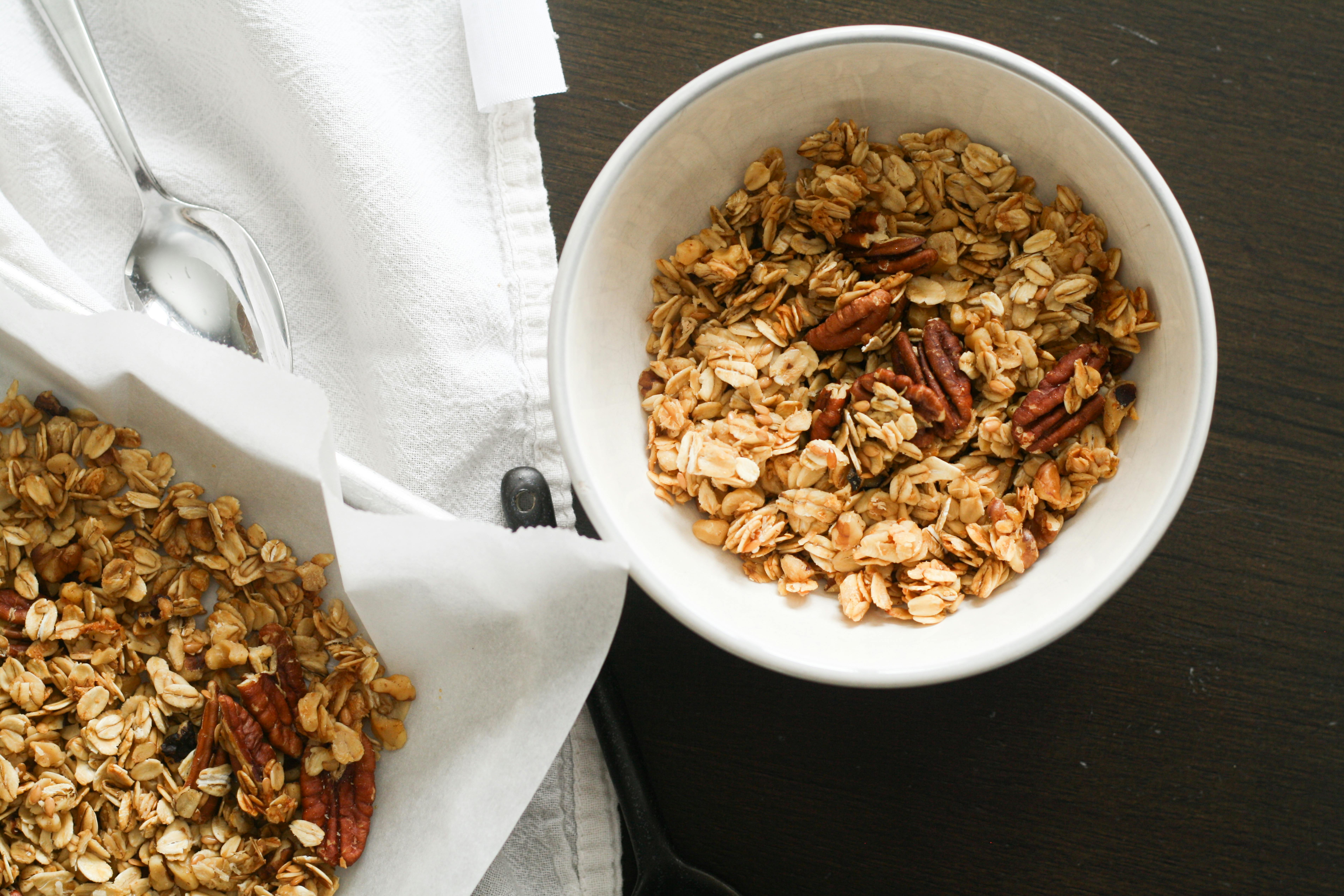Effective Ways to Optimize Your Body Recomposition Diet in 2025
As fitness enthusiasts and health-conscious individuals aim for their ideal physique, adapting a body recomposition diet becomes crucial for building muscle while simultaneously losing fat. This journey requires a comprehensive and balanced approach to nutrition that encompasses not only a calorie deficit but also the right macronutrient distribution, meal planning, and a focus on nutrient-dense foods. Understanding these components is vital as we move into 2025, where personalization and flexibility in dietary approaches will continue to evolve.
The benefits of a body recomposition diet extend beyond just weight loss or muscle gain; they offer a pathway toward sustainable health, better metabolic rates, and enhanced performance in physical activities. By integrating principles of strength training with nutrition, individuals can harness the power of food choices to support their fitness goals. In this article, we'll explore effective strategies for optimizing your body recomposition diet, including the importance of macronutrients, meal timing, and practical tips for meal prep and portion control.
Get ready to transform your eating habits and achieve a balanced diet that leads to better health and fitness outcomes. Through this article, you'll glean insights on how to maximize your caloric intake for muscle building, implement fat loss strategies, and discover the significance of hydration and nutrient absorption for optimal body composition.

Comprehensive Guide to Macronutrients for Body Recomposition
Understanding macronutrients is essential for anyone pursuing a body recomposition diet. Macronutrients include proteins, carbohydrates, and dietary fat, and they serve as the building blocks for our daily caloric intake, affecting everything from muscle gain to fat loss.
The Role of Protein in Muscle Building
Protein is a vital building block when it comes to muscle gain. Adequate protein intake supports muscle recovery and growth, making it a top priority in a body recomposition diet. Aim for high-protein meals to optimize your muscle-building efforts, ideally incorporating around 1.6 to 2.2 grams of protein per kilogram of body weight. Excellent sources of protein include lean meats, dairy products, legumes, and plant-based options like quinoa.
Carbohydrates: Fueling Your Workouts
While often vilified, carbohydrates play a crucial role in providing energy, particularly for those engaging in high-intensity workouts. Understanding carbohydrate intake and timing—such as consuming them around your workout sessions—can enhance performance and recovery. Focus on healthy carbs like whole grains, fruits, and vegetables to increase your dietary fiber intake.
Choosing the Right Fats
The inclusion of healthy fats is equally important for a balanced body recomposition diet. Dietary fat should not only be consumed for energy but also for the absorption of fat-soluble vitamins. Sources of healthy fats include avocados, nuts, seeds, and olive oil. Moderation is key—ensure that fat comprises about 20-35% of your total caloric intake to promote weight management and overall health.
As you develop your diet, remember that the balance of macronutrients can be tailored to fit personal preferences, exercise routines, and metabolic rates. It's vital to also factor in micronutrients, hydration, and diversity of meals to support overall wellness.

Meal Planning Strategies for Optimal Results
Effective meal planning is fundamental to achieving body recomposition goals. By structuring your meals, you can ensure you're meeting your caloric and macronutrient needs while still enjoying a variety of foods.
Importance of Meal Preparation
Meal prep is a powerful tool for maintaining dietary consistency and simplifying your eating routine. Allocate a day each week to prepare several healthy meals in advance, allowing you to adhere to your nutrition goals without the temptation of convenience foods. Additionally, incorporating meal prep into your routine promotes portion control, helping you avoid overeating and ensuring that your macronutrient targets are met.
Effective Portion Control Techniques
Portion control is a key aspect of both fat loss and muscle gain. Familiarize yourself with serving sizes and utilize measuring tools, such as food scales or portion plates, to maintain balanced eating habits. This awareness will help you navigate caloric intake without resorting to rigid calorie counting.
Meal Frequency and Timing Considerations
Another factor in meal planning is the frequency of meals. Research has shown that consuming 4-6 meals per day can aid in maintaining energy levels and supporting a stable metabolism. Implement meal timing strategies, such as eating a balanced meal or snack before and after workouts, to optimize your energy balance and nutrient absorption.
Effective Fat Loss Strategies Within Your Diet
Weight loss and fat loss strategies are crucial components of a successful body recomposition diet. It's vital to create a conducive environment for fat burning while ensuring muscle retention and growth.
Achieving a Caloric Deficit Sustainably
A consistent caloric deficit is necessary for fat loss, but it’s essential to do so in a sustainable manner. Aim for a daily deficit of around 500 calories, allowing for gradual weight loss of about 1 pound per week. Focus on selecting nutrient-rich foods with lower caloric density, such as vegetables and lean proteins, to help with satiety while still promoting fat loss.
The Role of Strength Training in Fat Loss
Combining effective nutrition with strength training not only enhances muscle gain but also boosts metabolism. Engaging in progressive resistance training helps to preserve lean muscle mass, which is vital for maintaining a higher metabolic rate during fat loss. Aim for at least 3-4 strength training sessions weekly to complement your dietary efforts.
Nutrient Timing: Increasing Fat Burning Efficiency
Proper nutrient timing enhances the effectiveness of your diet, especially concerning fat loss strategies. Consuming protein and healthy carbohydrates post-workout can help facilitate muscle repair while maximizing your caloric expenditure. This approach also allows you to maintain energy levels throughout the day without compromising recovery outcomes.
Building a Sustainable and Balanced Diet
Creating a balanced approach to your diet will foster long-term success in your body recomposition goals. Emphasizing sustainability and nutrition education is crucial for maintaining healthy eating habits over time.
Incorporating Variety in Food Choices
Diversity in your meals contributes to a well-rounded and satisfying dieting experience. Explore different food groups, experiment with seasonal vegetables, and integrate various cooking methods to enhance your meal variety—ensuring you don’t become bored or fall off track with your nutritional goals.
Mindful Eating Habits
Mindful eating encourages you to stay attuned to your body’s hunger and satiety signals. Practicing this approach helps you to better understand your eating habits, facilitate conscious decision-making, and create a healthy relationship with food. Avoid distractions during meals, focusing on flavors and sensations to enhance food enjoyment.
Utilizing Nutrition Tracking Tools
Utilizing apps for diet tracking can greatly enhance your awareness of caloric intake and macronutrient breakdown. These tools allow you to analyze your eating habits, track your progress, and make necessary adjustments based on your fitness goals. They can serve as a valuable resource for maintaining accountability and promoting a healthy lifestyle.
Q&A: Common Questions About Body Recomposition Diets
Why is protein important for a body recomposition diet?
Protein is crucial as it aids in muscle repair and growth while aiding weight management by promoting satiety. Consuming adequate protein helps prevent muscle loss during a caloric deficit.
Can carbohydrates help with fat loss?
Yes, carbohydrates provide the necessary energy for workouts and recovery. Optimal carbohydrate timing can enhance performance in strength training, leading to better body composition outcomes.
How often should I eat to optimize my body recomposition diet?
Eating 4-6 smaller meals throughout the day may help maintain energy levels, prevent overeating, and support effective nutrient utilization.
What role does fat play in a body recomposition diet?
Dietary fats provide energy, support hormone production, and facilitate the absorption of vitamins. They should comprise a healthy portion of your daily caloric intake.
How can meal prep contribute to my body recomposition goals?
Meal prepping allows for easier adherence to nutritional goals by enabling portion control and ensuring that you have nutrient-dense options readily available, which assists in maintaining consistency.
By understanding and implementing these effective strategies for your body recomposition diet, you can make significant strides toward your fitness goals in 2025. With careful planning, education on nutrient quality, and the integration of strength training and mindful eating, achieving your best body composition is within reach.
